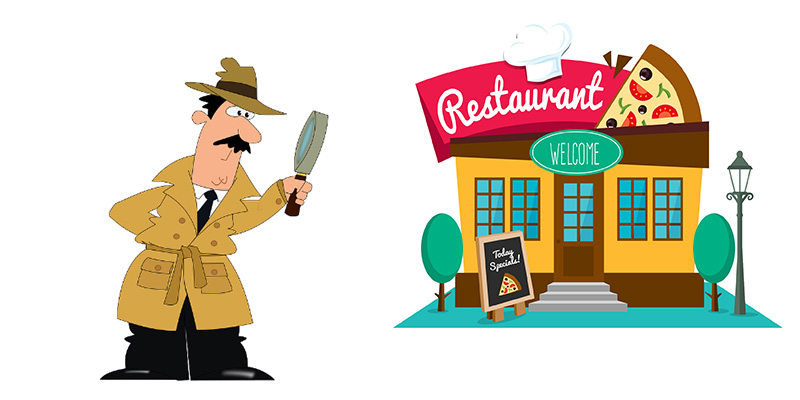Have you ever thought of opening your own restaurant? Do you sometimes wonder “Wow! These eateries earn a lot” and then wished to start one of your own? Do you find yourself doing the math of the daily earnings of the restaurants? If the answer to any one of these is yes, you are in the right place.
The old saying, “all that glitters is not gold” is aptly applicable to the restaurant business. The restaurant industry in the last decade has experienced exceptional growth. The demand for eating out or ordering in has risen exponentially with the change in eating and cooking patterns of the urban Indians and rise of the nuclear families. In addition, online delivery services like Zomato, Swiggy, Food Panda, etc. have further added to the demand. While there is an indefinite increase on the demand side, the supply of new restaurateurs still remains limited given the regulatory barriers put in place by the government.
A potential restauranteur ideally figures out the type of restaurant to open, its ambience, menu, location, investment sources, and the marketing plan. There is a long list of more such things an entrepreneur might want to plan for. However, none of these matter if first and foremost the restaurateur is not prepared to apply for dozens of licenses and permits that are needed.
One has to acquire licenses from the government to run a restaurant business in India. The rules are different in every locality. There is no specific limit on the number of documents that might be required and the time needed to get them. A minimum of seven licenses are definitely needed, they are:
1. Food Safety License
A necessity for all restaurants, this is the primary and the most important license for setting up a restaurant. Going forward, this license provides every restaurant with a unique 14-digit registration number.
2. Eating House License
3. Health License
This is an assurance done by the health department to ensure no apprehensions regarding health concerns at the restaurant.
4. Shops and Establishment License
This is a city-specific license that is needed to register your restaurant under the Shops and Establishment Act applicable in the locality.
5. Certificate of Environmental Clearance
6. Signage License
Even for marketing your restaurant you need to seek permission from the esteemed government through this license. This is a license asking for allowance to use posters and other publicity techniques to reach out to customers.
7. Fire Safety License
Even though these seven licenses seem not a lot for getting permissions. The catch here is that for every license, you need to have pre-permits and documents ready. Delhi and Mumbai are known to be the easiest cities for opening businesses in terms of getting licenses. But, in Delhi itself, one needs around 57 documents. This also involves multiple coordination with different government departments, water dept, electricity dept, fire safety dept, etc.
Separately, there are Lift Clearance Licenses, Music License and Liquor License which are optional to get. The ‘ease’ of entering this industry isn’t so easy. And that is why more and more owners prefer starting an unorganized sector restaurant than to spend money, time and energy in getting these permits from multiple government offices. As per 2017 statistics, the Indian restaurant Industry had more than 1.5 million eateries, out of which only 3000 were in the organized sector.
While most of the world is going digital and our government is also trying to create a ‘digital India’, it is nothing but funny that the restauranteurs have to roam in and out of the government offices for submission of documents and getting these licenses.
The Food License which is obtained by the FSSAI recently moved its operation online. However, it is only the signing up procedure that happens digitally. Later on, the filled online form has to go in hardcopy by the restauranteur to the State Authority. Similar procedures are followed for Eating House License, Shops and Establishment License, etc.
The trade barriers and license raj are a menace to the potential restauranteurs. What becomes the cherry on the cake is the cost that is involved. The cost of obtaining these licenses varies, depending on the size of the venture. It can be anywhere between 18,000 to two lakh rupees and that is without ‘baksheesh’.
If the government really wants to promote the ‘ease’ of doing business, it must do away with it acting as a deterrent and permit-giver. This doesn’t promote the presence of a fair and efficient market. Of course, checks on health and fire hazard are advisable, but making it a bureaucratic process is not!
Read more: Food and Spontaneous Order: Daastan-E-Dilli
Post Disclaimer
The opinions expressed in this essay are those of the authors. They do not purport to reflect the opinions or views of CCS.




